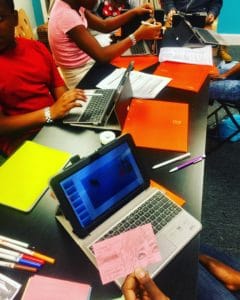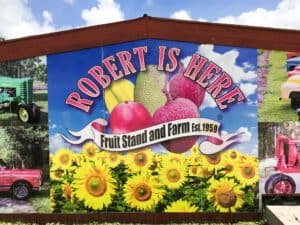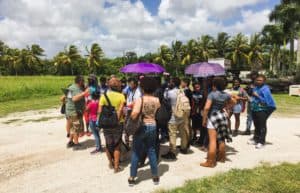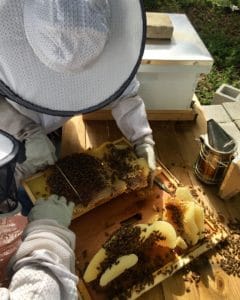Raising Socially Responsible Leaders
“Social responsibility is an ethical theory, in which individuals are accountable for fulfilling their civic duty; the actions of an individual must benefit the whole of society. In this way, there must be a balance between economic growth and the welfare of society and the environment.” ~ Pachamama Alliance
On the first day of the GENERATION2050 Summer Youth Enrichment Program, one of the students remarked, “I already know everything this program is about: “Believe in yourself, work hard, don’t give up, you can be whatever you want to be…I’ve heard all of it before.” His statement made me sad, but determined to teach the students that leadership is more than knowing the right slogans. I want them to understand GENERATION2050 leadership includes being socially responsible. In fact, I am determined that they not only learn how to be a socially responsible entrepreneurial leader, I want them to see the concepts in action and begin to implement them in their own lives.

During The Network for Teaching Entrepreneurship (NFTE) class last week, the students were introduced to the concept of social responsibility. Social responsibility was a new concept for many. They were instructed to include a section in their business plans describing how their business will be socially responsible. In addition to the NFTE curriculum, we are introducing the students to local, socially responsible entrepreneurs.

We traveled to Robert is Here, the South Florida landmark fruit stand, and spoke to Brandon. Brandon is the son of the Robert of Robert is Here. Brandon’s father started the fruit stand on the corner in front of his house when he was six years old, in response to his family’s financial need. Fifty-seven years later, Robert is Here consists of over twenty acres of prime agricultural property in Homestead, Florida, a South Florida tourist destination and profitable fruit stand. Brandon explained that they do not throw any fruit or vegetables grown on their farm land into the garbage: what doesn’t sell at the fruit stand, they turn into smoothies, shakes, jams, jellies, or preserves. They also provide fruit and vegetables to local food banks and churches that feed those in need.

Brandon walked us to a fallow farm field to explain some concepts of environmental sustainability to our group. He explained how his family has cared for their farm land over three generations with environmental sustainability and conservation in mind.
We are also teaching hands-on social responsibility in our urban gardening and urban beekeeping classes. Recently, we have been focusing on the use of chemicals in our everyday lives from soap to pharmaceuticals to pesticides. How do chemicals make our lives better? How can chemicals, like pesticides, have a negative impact on our environment? We have discussed how pesticides are negatively impacting the honeybee population worldwide.

Our GENERATION2050 urban gardening instructor, Mrs. Williams, has been teaching the students alternative, natural methods to protect the fruit and vegetable plants from insect and animal pests. Over the course of the summer, the students are implementing what they learn with their own hands in the urban garden.

This week, the a small group of students will assist Michele and I in their first hands-on bee hive inspection. One of the students assisting us will be the young man I quoted at the beginning of this article. In spite of his first day’s comments, he has been finding out that there is a lot to learn about leadership, entrepreneurship, and social responsibility.
Between NFTE classes, interacting with successful, socially responsible entrepreneurs, and hands-on activities, I believe we are encouraging these students to become socially responsible, entrepreneurial leaders.

(Photo credits: Deon Gedeon, PlanBe__ Miami, Linda Freeman, and Serena Pulley)


What People Are Saying